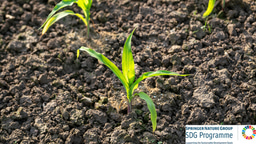Cancer in understudied populations Collection - Contribution Highlights
Published in Cancer

About this Collection
Cancer research has brought significant advances in cancer screening, diagnosis, and treatment that have improved patient outcomes. However, much about cancer remains unknown because many populations remain understudied, including racial and ethnic minorities, rural populations, and sexual and gender minorities. This may result in worse outcomes, as we may be unaware of underlying biology that affects cancer development and response to therapy, uncommon cancer etiologies that may mask diagnosis, or disparities that make it difficult to access care and treatment. Reducing cancer incidence and mortality requires increasing our understanding of cancer in these classically understudied population and improving health equity.
Contribution highlights
Extranodal marginal zone B-cell lymphoma of mucosa-associated lymphoid tissue (MALT lymphoma) is a type of cancer that affects the immune system. It usually progresses slowly, but can become more aggressive if it transforms into diffuse large B-cell lymphoma (DLBCL). This study, led by Yujie He and colleagues, looked at how often MALT lymphoma changes into DLBCL and what factors might increase this risk.
The researchers used data from the SEER database, which collects cancer information from across the U.S., to study patients diagnosed with MALT lymphoma between 1995 and 2016. They found that 2.2% of these patients experienced transformation to DLBCL. The study showed that patients with symptoms like fever or weight loss (B symptoms), those over 60 years old, and those with advanced-stage disease were more likely to experience this transformation.
The study concludes that certain patients with MALT lymphoma need closer monitoring to catch transformations early. Future research could focus on genetic factors that might predict transformation, helping doctors tailor treatments more effectively.
Gastrointestinal (GI) cancers, such as those affecting the esophagus, stomach, and pancreas, are major health concerns worldwide, including in Iran. Smoking is a known risk factor for these cancers, and opium use is also linked to increased risk. This study by Masoume Mansouri and colleagues explores whether quitting smoking and opium can reduce the incidence of GI cancers in Iran. Using data from the Golestan Cohort Study, which followed over 50,000 people for 10 years, the researchers examined the effects of quitting these substances. They found that long-term cessation (over five years) of smoking and opium significantly reduced the risk of esophageal cancer. However, quitting did not significantly lower the risk for stomach or pancreatic cancers. The study highlights the importance of quitting smoking and opium for cancer prevention, especially in regions with high usage rates. Future research could further explore the long-term benefits of cessation and inform public health strategies.
Colorectal cancer (CRC) is a major health issue in the United States, especially in rural Appalachia, where death rates are high. Researchers, including Aisha Montgomery, explored how social factors like poverty and lack of healthcare access affect CRC survival. They used machine learning (ML), a type of computer analysis, to predict CRC survival by including these social factors, known as social determinants of health (SDOH). The study used data from 1,000 patients aged 18 and older from cancer centers in Appalachia. They tested four ML models with different combinations of patient information, including demographic, clinical, and SDOH features. The best model included all three types of data, showing that SDOH factors like rural living and insurance status significantly impact CRC survival predictions. The study concludes that including SDOH in ML models can improve predictions and help address health disparities. Future research will expand data collection to enhance model accuracy and better understand SDOH impacts on CRC survival.
Who is involved?
Guest Editors:
- Filipa Godoy-Vitorino, University of Puerto Rico, USA
- Minghui Sam Li, University of Tennessee Health Science Center, USA
- Sandra Romero-Córdoba, National Autonomous University of Mexico, Mexico
- Seema Singh, University of Mississippi Medical Center, USA
Internal Team:
- In-House Editor: Rachel Toth, Scientific Reports, USA
- Commissioning Editor: Jenny Knowles, Fully OA Brands, Springer Nature, UK
- Managing Editor: Aliya Anwar, Fully OA Brands, Springer Nature, UK
How can I submit my paper to a Collection?
Visit the Scientific Reports website to explore all Collections and learn how to submit your article.
Follow the Topic
-
Scientific Reports

An open access journal publishing original research from across all areas of the natural sciences, psychology, medicine and engineering.
-
A Collection of original research articles on cancer in understudied populations, including studies examining these populations from epidemiological, clinical, and biological perspectives.
Related Collections
With Collections, you can get published faster and increase your visibility.
Obesity
Publishing Model: Hybrid
Deadline: Apr 24, 2026
Reproductive Health
Publishing Model: Hybrid
Deadline: Mar 30, 2026






Please sign in or register for FREE
If you are a registered user on Research Communities by Springer Nature, please sign in